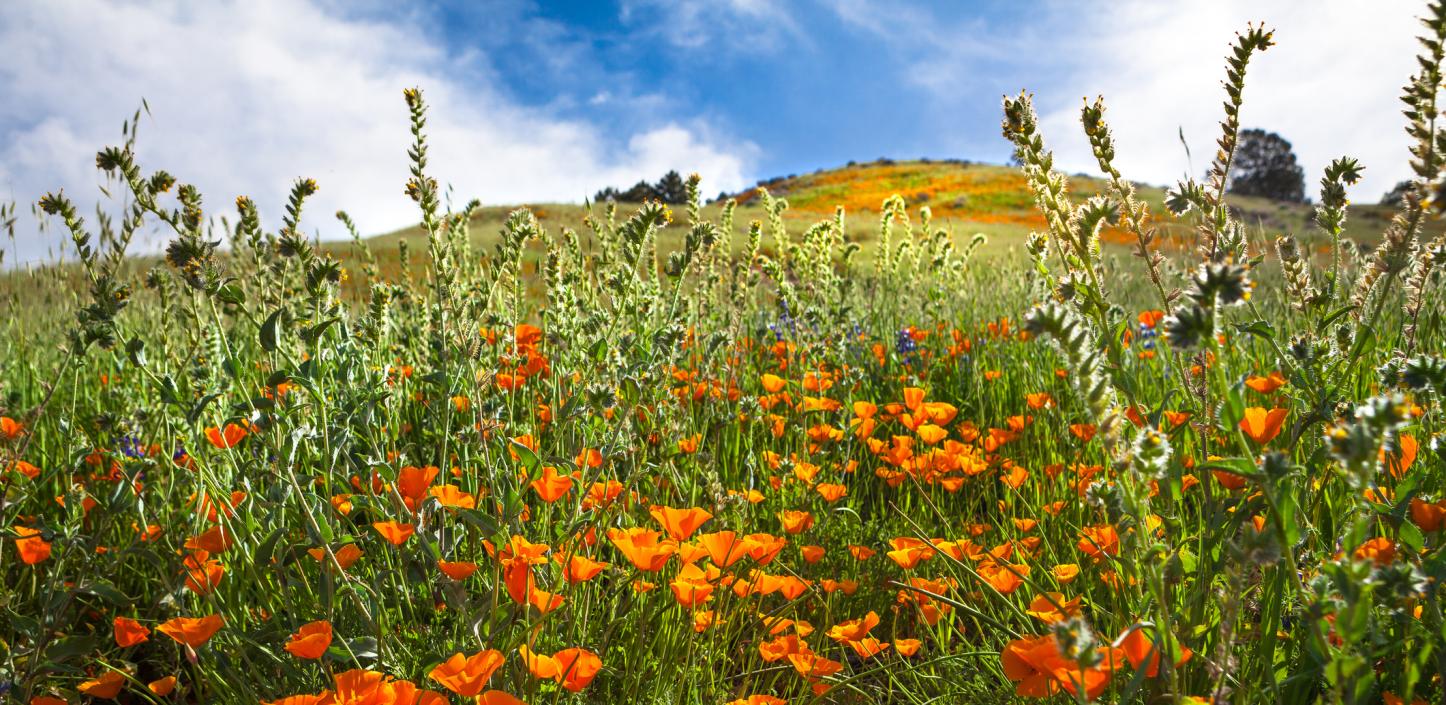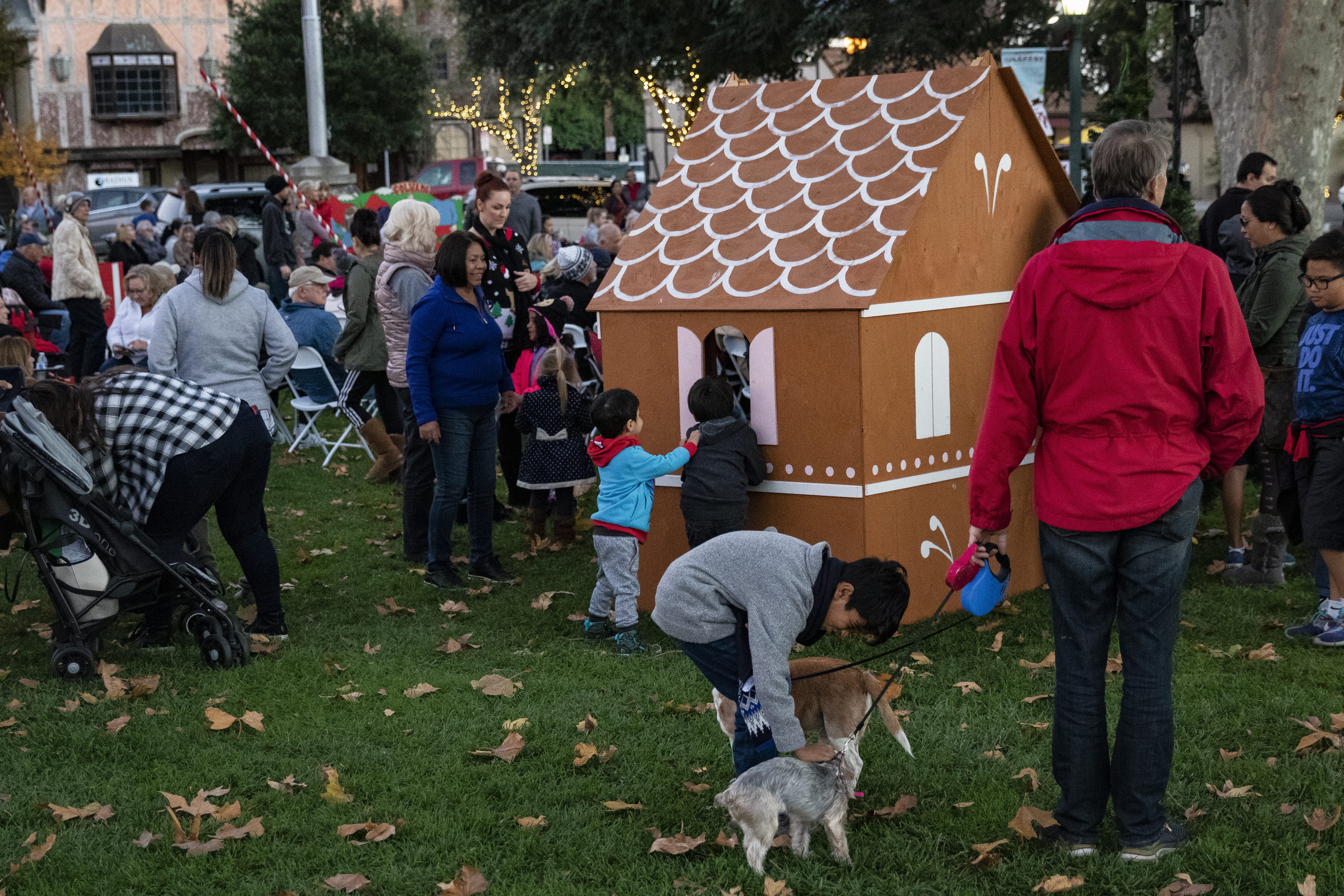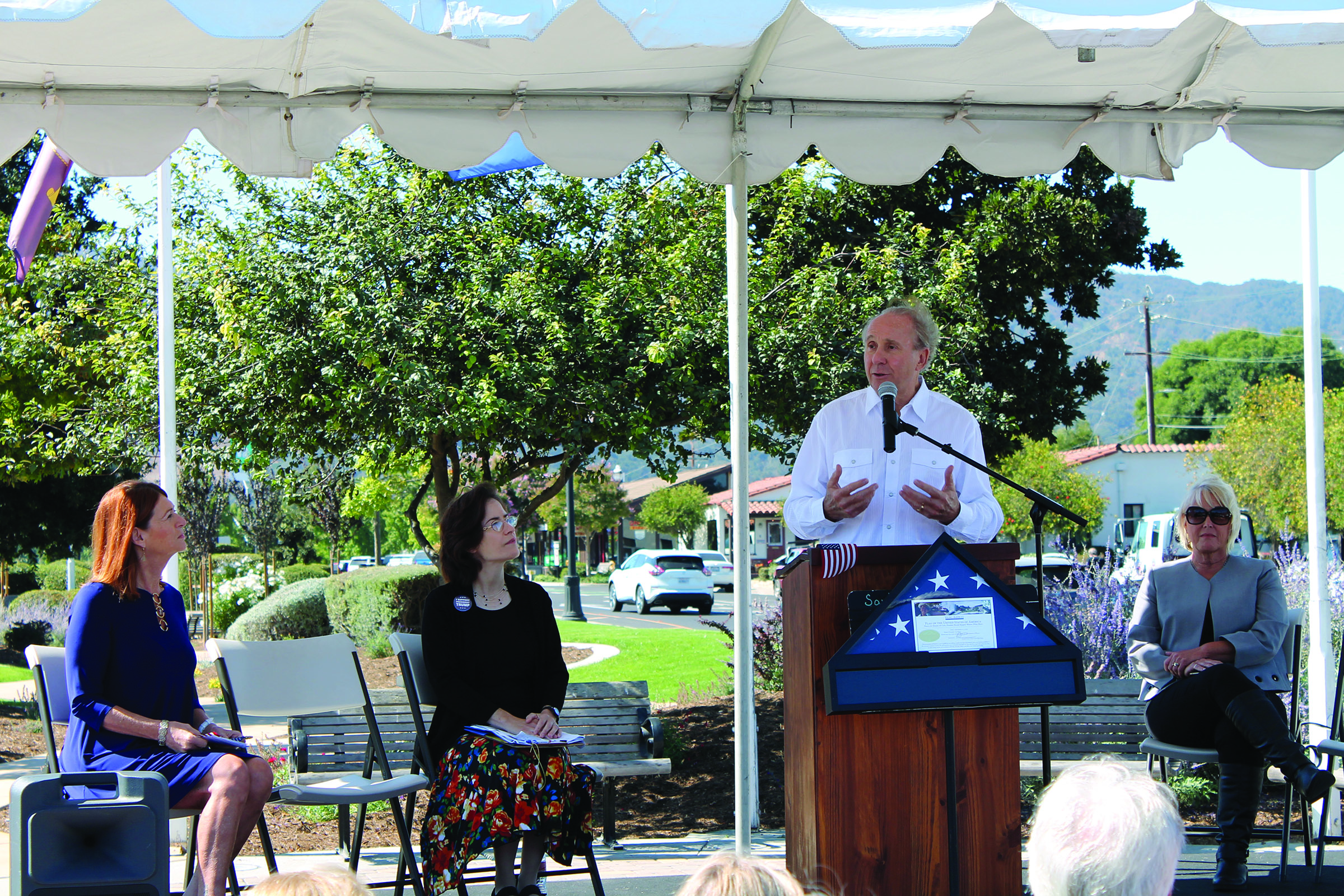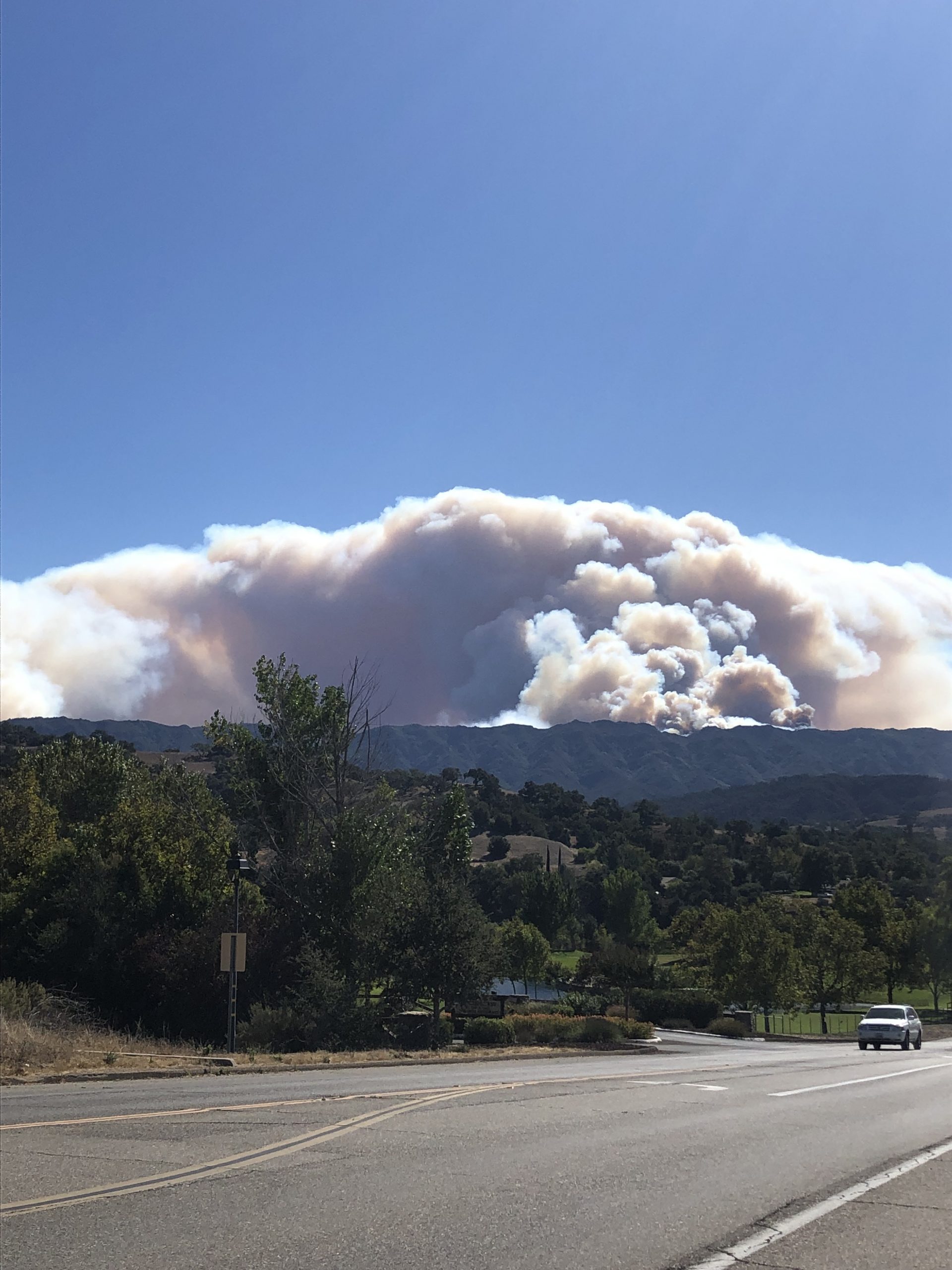By Raiza Giorgi
publisher@santaynezvalleystar.com
The Chumash Casino Resort will reopen its doors at noon on Wednesday, June 10 with strict safety measures and cleaning procedures in place after being closed for nearly 13 weeks in a statewide effort to slow the spread of COVID-19.
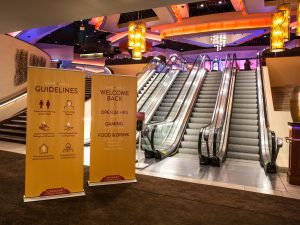
The Chumash Casino will reopen June 10.
Photo by George Rose
“We all understand the reality of the situation. An Asymptomatic person can be out shopping in stores, dining in restaurants, or visiting friends’ homes and exposing others to COVID-19. As we developed a plan for reopening, we listened to the medical experts, we abided by Gov. Gavin Newsom’s phased reopening plan and we made a significant investment in our operation to create a safe environment everyone can enjoy,” said Kenneth Kahn, Chumash Tribal Chairman.
On March 15, the tribe announced the casino would close its doors days ahead of California Gov. Gavin Newsom’s issued statewide stay-at-home order to combat the virus’s spread.
The gaming floor will feature reduced seating and more than 1,000 protective barriers have been affixed between slot machines and separating table games dealers and patrons to promote social distancing, while the food court, with fewer tables, and the Grains & Grounds eatery will be open for guests. The food court will be open from noon to midnight, and the coffee shop open 24 hours.
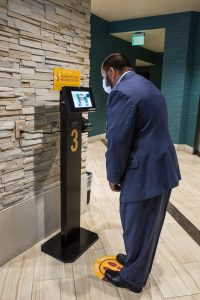
All guests and employees are required to take their temperature at the WelloStationX automated non-contact thermometer kiosk.
Photo by George Rose
All guests and employees will be required to take temperatures at their WelloStationX™ non-contact temperature screening devices before entering and no one with 100.4 degrees will be allowed to go in. There have been 30 WelloStation’s added, that will print out an “I’m wello” sticker everyone will be asked to wear. There will also be security walking the floor to ensure everyone has a sticker on and they will have handheld, non-contact devices to check temperatures.
Hand sanitizer stations have been placed on the gaming floor and guests will be encouraged to use them. Their enhanced HVAC system provides 100 percent ventilation with no recirculation. There is also a non-smoking section with its own specific air system.
While walking on the gaming floor everyone is required to wear a mask, however guests that are sitting can remove their masks between partitions. Dealers will be required to wear masks and gloves, and there are limits to four players on most games.
“From temperature checks to enhanced cleaning schedules, to plexiglass barriers between slot machines and separating table games patrons, to requiring guests and employees to wear masks. When we resume operations, we’ll be ready to welcome guests back with safety measures to help protect them while they’re here,” Kahn said.
Until further notice, bingo sessions, the Poker Room, the fine-dining restaurant Willows, The Café, The Buffet and The Spa will be temporarily unavailable.
The Santa Ynez Band of Chumash Indians’ other properties – Hotel Corque, Hadsten House, Root 246 restaurant and the Kitá Wines tasting room – will remain temporarily closed.
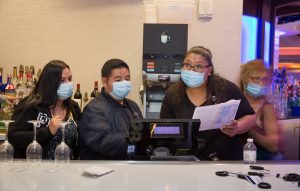
All employees are going through reopening training.
Photo by George Rose
As the Chumash Casino Resort prepares to reopen its doors, it will welcome back employees in the coming weeks. On their return, all employees are receiving training on COVID-19 safety and sanitation protocols with more comprehensive training for those who interact frequently with guests. In addition, employees will be required to wear appropriate Personal Protective Equipment (PPE), and follow safety guidelines while on property.
“We believe we’ve waited until the right time to reopen the resort,” Kahn said. “All throughout the closure, we’ve reminded our employees and guests that their health and well-being are our top priority. By securing high-tech equipment, implementing strict safety procedures and working closely with the state to determine a sensible reopen date, we believe we’ve met the challenge of creating a safe environment under the current conditions.”
Located on Highway 246 in Santa Ynez, California, the Chumash Casino Resort is owned and operated by the Santa Ynez Band of Chumash Indians.
The tribe also owns Hotel Corque, Root 246, and Hadsten House in Solvang, two gas stations in Santa Ynez, and its own wine label – Kitá Wines. As the largest employer in the Santa Ynez Valley, the tribe employs more than 2,000 residents of Santa Barbara County.


